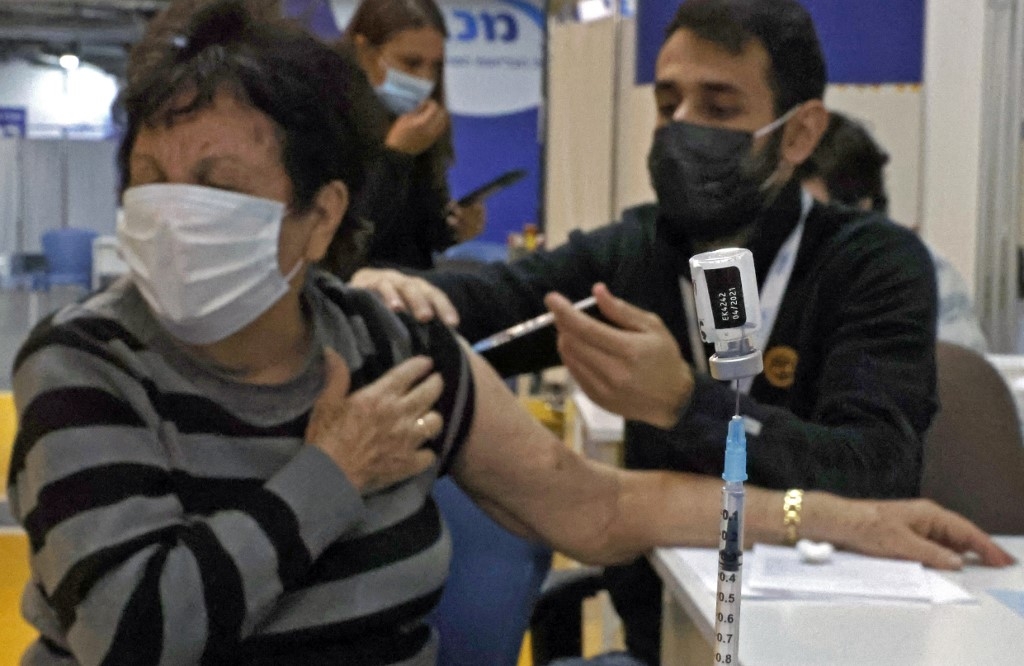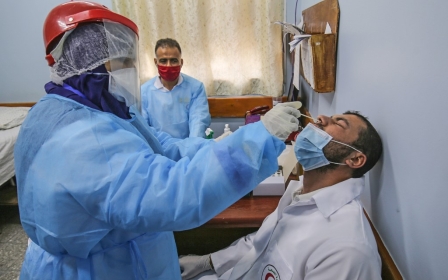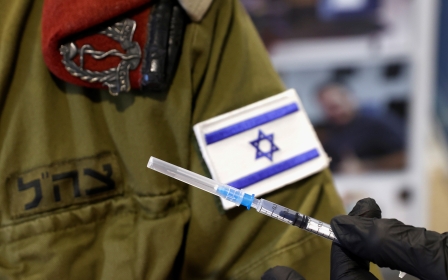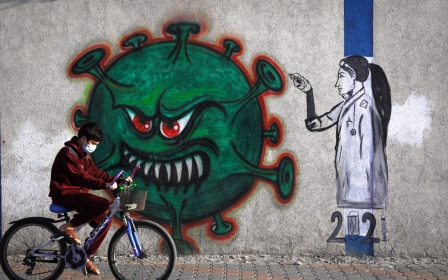Israel to give few Covid-19 vaccines to Palestinians amid 'apartheid' accusations

Israel said on Sunday it has approved the transfer of 5,000 doses of coronavirus vaccine to Palestinian front-line medical workers amid criticism of the country's failure to provide vaccines to territories under its occupation.
According to a statement by the office of Israeli Defence Minister Benny Gantz, cited by the Associated Press, the transfer has been approved but no further details have been given.
Palestinian officials have yet to react to the announcement, which seems to fall short of demands for Israel to supply vaccines to Palestine's population of nearly 5 million.
Israel has the world's highest number of vaccines administered per capita, with nearly 33 percent of its population immunised as of Sunday, but its vaccine rollout has been tainted by its government's refusal to inoculate Palestinians living under its control.
Israel and its supporters maintain that immunising Palestinians is the duty of the Palestinian Authority. Critics argue that Israel, as the occupying power in the Palestinian territories, has a legal and moral obligation to provide the vaccines. Many have accused Israel of "apartheid" due to its stance.
"Israel's duties under the Fourth Geneva Convention to ensure medical supplies, including to combat the spread of pandemics, are heightened after more than 50 years of occupation with no end in sight," Human Rights Watch has said.
"These responsibilities, alongside its obligations under international human rights law, include providing vaccines in a nondiscriminatory manner to Palestinians living under its control, using as a benchmark what it provides for its own citizens," it added.
Meanwhile, the United Nations has called on Israel to ensure "swift and equitable" vaccine access for Palestinians, noting the Israeli government's success in inoculating its own citizens.
"Morally and legally, this differential access to necessary health care in the midst of the worst global health crisis in a century is unacceptable," UN experts said in a statement earlier this week.
Middle East Eye delivers independent and unrivalled coverage and analysis of the Middle East, North Africa and beyond. To learn more about republishing this content and the associated fees, please fill out this form. More about MEE can be found here.





